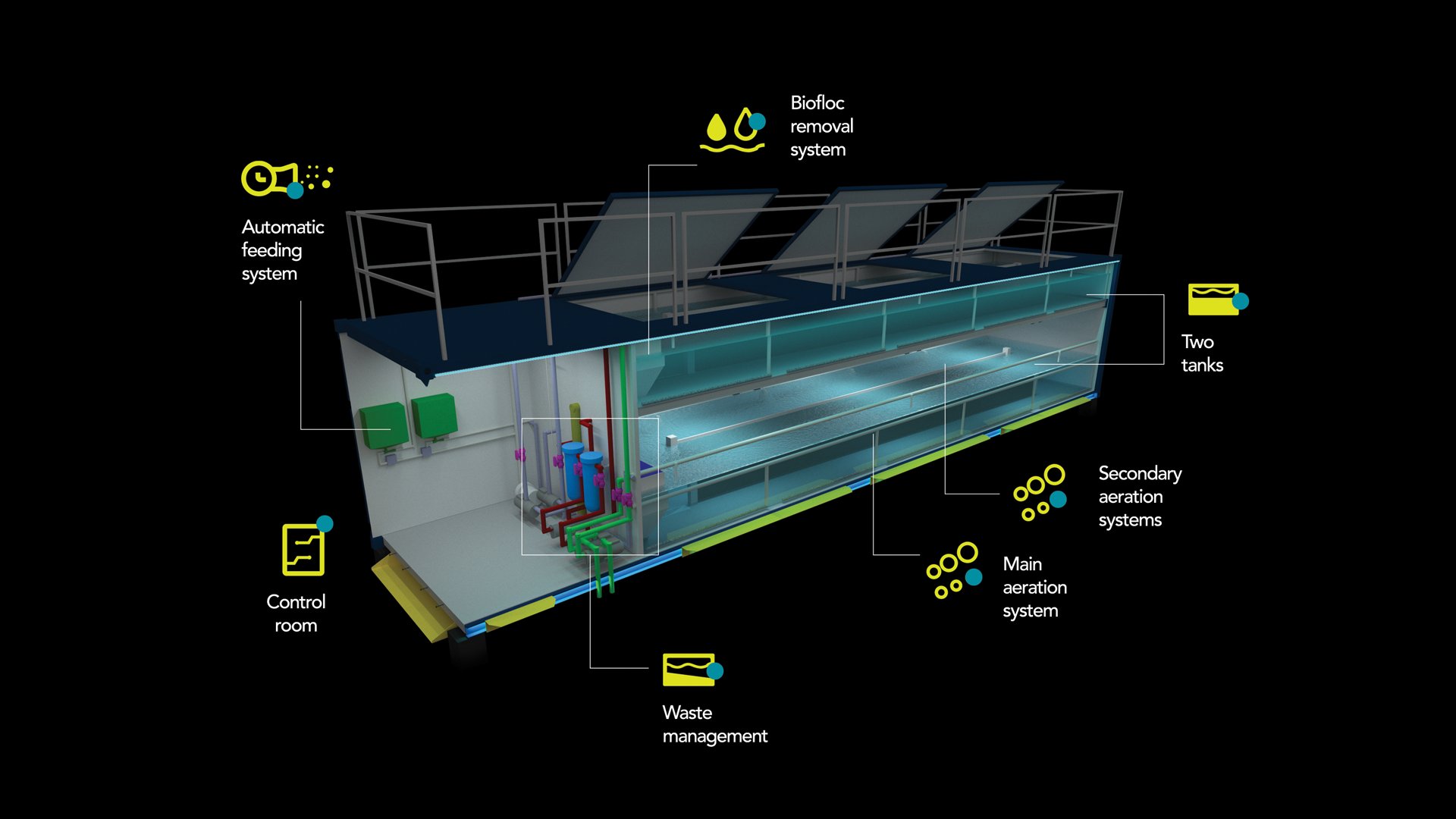

Americans are eating more shrimp than ever. For seafood fans, the animals–mostly protein and water–are great additions to a dish fried, baked, or sauteed with some chili flakes, garlic, and lemon. But their popularity is raising questions about the sustainability of raising or catching them. Bycatch can be a problem when fishers net wild shrimp. And shrimp farms are devastating for the world’s precious mangrove ecosystems.
A company called Atarraya had an idea: a Shrimpbox. This shipping container-sized contraption can be plopped anywhere and would hold everything needed to grow shrimp inside. The Mexico City-based company has emerged after two years of being in stealth mode, TechCrunch reported, and now it has a new US office headquartered in Indianapolis.
Inside the Shrimpbox are an automated feeding system, a waste management system, two aeration systems, two tanks, and a control room to monitor the shrimps’ activities. It also houses a biofloc waste removal system that keeps the water clean by promoting the growth of beneficial microbial communities. Each Shrimpbox is semi-automated by a software that can monitor the tanks, which have sensors inside that measure the concentrations of oxygen, temperature, pH, nitrogen dioxide, nitrate, ammonium, turbidity, and alkalinity of the water. Users can even feed the shrimp remotely, or tweak the settings based on the data they receive. The company’s aim was to create infrastructure that is easy to learn and use for prospective shrimp farmers. Multiple containers and components, able to be adjusted and moved, can be combined into a farm.
Atarraya claims that the technology it uses to grow shrimp “reduces water exchange almost to zero,” and “eliminates the need to use antibiotics and other chemicals,” both of which enable them to start these kinds of farms anywhere in the world.
Atarraya is currently in talks with the Indiana state government to install the first aquaculture farm there. Some versions of shrimp aquaculture already exist in Indiana, including RDM Aquaculture, a farm that produces 250,000 shrimp a month. According to TechCrunch, Atarraya’s farm, which will be intended for demo and training, is expected to open there later this year. Other Shrimpbox prototypes are being assembled in Oaxaca, Mexico.
Atarraya is not the first company with the dream of growing seafood indoors. A Singapore-based startup called Vertical Oceans is also looking to grow shrimp in an indoor environment. As traditional food systems become more fraught under climate change, many in the industry are pivoting to more creative methods. Since the 2010s, aquaponics farms, where freshwater fish and greens are grown together in a circular system, have been cropping up across the US. Experts have touted aquaculture, or fish farms, as reliable ways to efficiently produce protein for a growing global population. Tech advancements and ingenious setups that keep tank water fresh have fueled a boom in indoor aquaculture. But food safety, waste treatment, and high operating costs are just some ongoing challenges these types of companies have to face as they wade into this space.
Take a tour of the Shrimpbox below: